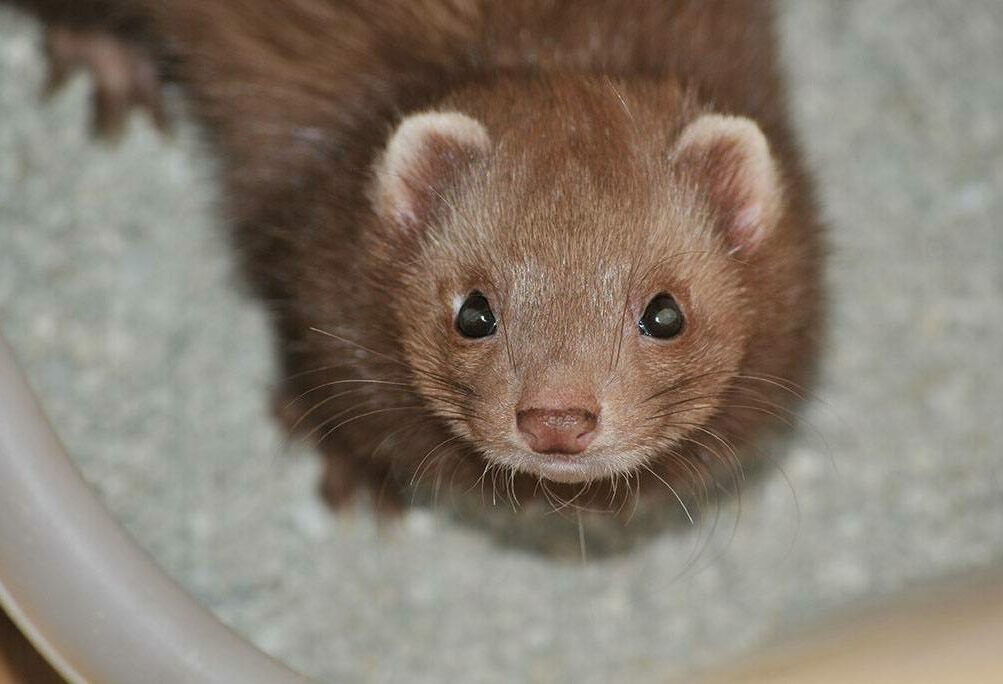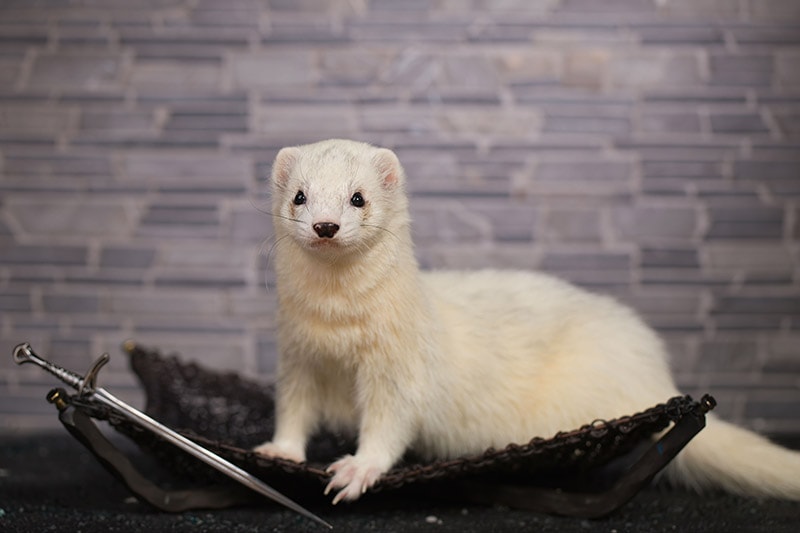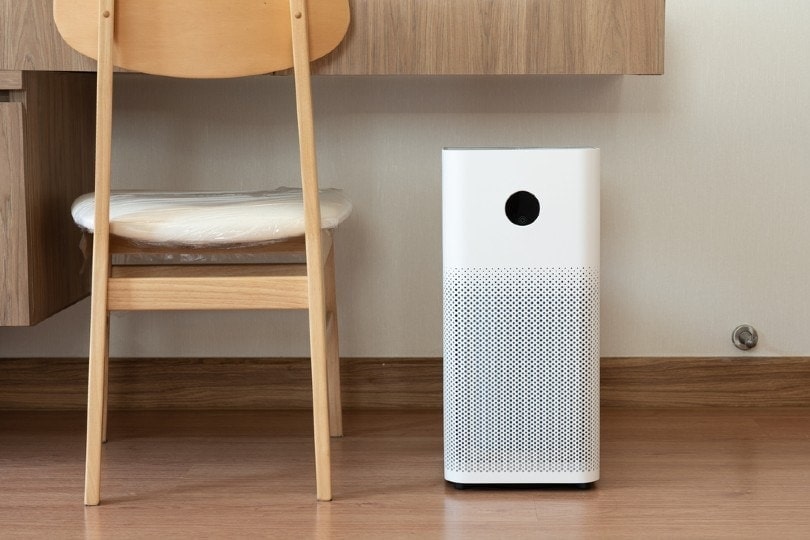Can Ferrets Use Cat Litter? Vet-Verified Facts & Safety Guide
Updated on

Ferrets may not be as popular as cats and dogs, but they have a loyal following. Roughly 326,000 households include at least one of these exotic animals.1 Like other pets, they first found a place among people by being useful as rodent hunters about 2,500 years ago. It’s a trait they share with cats. Both also can be trained to use a litter box.
Pet owners make good use of an animal’s instinct to train them. Cats prefer to cover their waste and ferrets tend to use the same area, making a litter box an excellent choice for either creature. However, that’s where the similarities end. Their litter box behavior makes some types of cat litter safe for ferrets, while others are not. Let’s begin there.
Ferret Behavior
One trait cats and ferrets share is curiosity. Both animals are inquisitive. If there’s something to investigate, a ferret will find it. It doesn’t matter if it’s under the couch or in an HVAC vent. Remember that these animals like to burrow and dig. That includes litter boxes, no matter what its primary purpose. This means that choosing a litter that is safe for burrowing is imperative. Dusty litters, such as those made out of clay, can be detrimental to your ferret’s respiratory system if they dig in it.
If using a litter box for your ferret, be sure to provide one in the cage and one outside of it if you let your ferret have time to roam free. Since ferrets digest their food rapidly and will defecate every 3 to 4 hours, you’ll find the extra litter box will come in handy.

Good and Bad Litter Options
Your ferret’s behavior directly impacts which litter you should use. You shouldn’t fill the box with clay or silica products. Even clumping litter is problematic. The issue lies with the animal’s penchant for digging. The dust they contain can irritate their respiratory system if inhaled. Remember that your pet is going to put their nose in the litter when burrowing, meaning problems may be inevitable.
The same caution applies to wood shavings. Pine and cedar that aren’t properly kiln dried can contain harmful oils that can be irritating to your ferret. Some ferrets may even try to eat wood shavings, which can only exacerbate the problem and perhaps lead to more serious health conditions, such as gastrointestinal obstructions.

Ferret-Safe Litter
The best options for ferrets are pellet litter products. You’ll find litter made from recycled newspapers, compressed wood, or corn. They are absorbent and safe for your pet. They are unscented and affordable, and they’re also an eco-friendly choice since they are biodegradable. Your ferret won’t track them through your home, either.
You can also use shredded newspapers or even puppy pee pads. Remember that ferrets are playful and curious. They may still try to burrow underneath them or drag them around the room, so getting a pee pad holder may be important. We recommend cleaning the litter box or replacing the other items daily for optimal odor control. You should use the same caution as if you had a cat. Always wash your hands afterward as well.
Final Thoughts
Ferrets are fun pets that are rewarding to own and raise. Their fastidious cleanliness makes training them to use a litter box an easy task. However, these pets won’t treat the litter the same as felines. It can end up as another toy or place to explore. Therefore, you should only use pelleted litter that is ferret-safe. They offer a hassle-free solution without the health risks or mess of clay or silica cat litters.
See Also: How Often Do Ferrets Poop? Vet-Approved Digestive Facts & FAQ
Featured Image Credit: Yasmins world, Shutterstock











